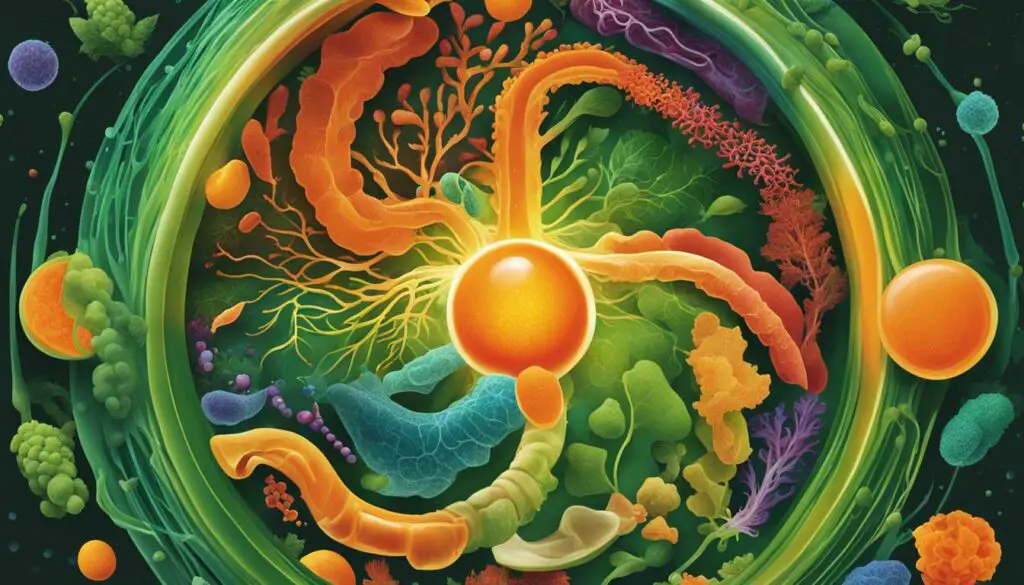Have you ever wondered if shrimp can cause gas or bloating? You’re not alone! Many people experience digestive discomfort after consuming shrimp. In this article, we will explore the impact of shrimp on digestion and uncover some fascinating facts about its effects on the digestive system.
Key Takeaways:
- Consuming shrimp can affect digestion and potentially lead to gastrointestinal discomfort.
- Shrimp contains fiber-like resistant starch (RS) that can alter the composition of the gut microbiome.
- Some individuals may experience gas and bloating after eating shrimp.
- Shellfish allergy can cause severe allergic reactions and should be taken seriously.
- A balanced diet with fiber-rich foods and fermented foods can support gut health.
Symptoms and Diagnosis of Shellfish Allergy
Shellfish allergy is a common food allergy that can cause allergic reactions ranging from mild to severe. This type of allergy occurs when the immune system mistakenly identifies proteins in shellfish as harmful, triggering an immune response.
Common symptoms of a shellfish allergy include:
- Itching
- Hives
- Tingling lips
- Nausea
- Coughing
- Wheezing
- Chest tightness
- Abdominal pain
- Diarrhea
- Vomiting
In severe cases, a shellfish allergy can lead to anaphylaxis, a potentially life-threatening reaction that requires immediate medical attention.
If you suspect a shellfish allergy, it is important to consult with a healthcare professional for diagnosis and guidance. Diagnostic methods for shellfish allergy include:
- Skin prick tests: A small amount of shellfish extract is applied to the skin with a tiny needle, and any resulting allergic reaction, such as redness or swelling, is observed.
- Blood tests: These tests measure the levels of specific antibodies, such as immunoglobulin E (IgE), in the blood. Elevated levels of IgE can indicate an allergic response to shellfish proteins.
If a shellfish allergy is confirmed, it is essential to avoid all types of shellfish, including shrimp, crab, lobster, and mollusks like clams and oysters. Adhering to a strict avoidance diet is the most effective way to prevent allergic reactions.
The No. 1 Lunch for Gut Health
To promote a healthy gut and avoid digestive issues, nutrition experts recommend the “Kimchi Shrimp Cup of Noodles” as a gut-friendly lunch option. This meal provides a balanced combination of essential macronutrients, including carbohydrates, protein, and healthy fats. The addition of shrimp or other lean proteins ensures an adequate source of protein, while fiber-rich add-ons like almonds or avocados provide fuel for the gut bacteria and help maintain regular bowel movements. Including fermented foods, such as yogurt, can also contribute to a healthy gut microbiome due to the presence of probiotics.

Why the “Kimchi Shrimp Cup of Noodles”?
The “Kimchi Shrimp Cup of Noodles” is an ideal choice for a gut-friendly lunch due to the combination of its key components:
| Key Component | Benefits |
|---|---|
| Shrimp or Lean Proteins | Provides essential amino acids, supports muscle growth and repair |
| Carbohydrates | Serves as an energy source, supports proper digestion |
| Healthy Fats | Aids in nutrient absorption, helps regulate inflammation |
| Fiber-rich Add-ons | Supports gut microbiome, promotes regular bowel movements |
| Fermented Foods | Introduces beneficial bacteria, improves gut health |
The combination of balanced macronutrients, fiber-rich foods, and fermented ingredients makes the “Kimchi Shrimp Cup of Noodles” an excellent choice for a gut-friendly lunch. It not only nourishes the body but also supports a healthy digestive system.
The Importance of Gut Health
Maintaining a healthy gut is crucial for overall well-being and can help prevent digestive diseases such as chronic constipation, irritable bowel syndrome, and Crohn’s disease. The gut microbiome, which consists of trillions of bacteria and other microorganisms in the digestive tract, plays a vital role in digestion, metabolism, and immunity.
Imbalances in the gut microbiome, known as dysbiosis, can lead to various health issues. Research has shown that an unhealthy gut microbiome is associated with an increased risk of gastrointestinal disorders and chronic conditions. By prioritizing gut health, individuals can support their body’s natural defense mechanisms and promote optimal digestion.
“A healthy gut is the foundation for overall wellness.”
Factors such as poor diet, stress, lack of physical activity, and excessive antibiotic use can disrupt the balance of the gut microbiome. Consuming a diet rich in fiber is essential for promoting gut health. Foods like fruits, vegetables, whole grains, and legumes provide the necessary fiber to fuel the growth of beneficial bacteria in the gut.
Fermented foods, such as yogurt, sauerkraut, and kimchi, also contribute to a healthy gut microbiome by providing probiotics – live bacteria that confer health benefits when consumed. These probiotics help maintain a diverse and balanced gut microbiota, which is essential for proper digestion and immune function.
It’s important to note that each individual’s gut health is unique, and what works for one person may not work for another. Listening to your body and paying attention to any digestive symptoms can help guide you towards making informed dietary choices to support gut health.
Key Takeaways:
- Maintaining a healthy gut is vital for overall well-being and can prevent digestive diseases.
- The gut microbiome plays a critical role in digestion, metabolism, and immunity.
- An unhealthy gut microbiome can lead to various health issues and chronic conditions.
- Consuming a fiber-rich diet and incorporating fermented foods can support gut health.
- Individualized approaches to gut health are essential as each person’s gut microbiome is unique.

Conclusion
In summary, the consumption of shrimp can affect digestion and lead to gastrointestinal discomfort for some individuals. While shrimp is a good source of protein and nutrients, it is important to be cautious of shellfish allergies and avoid shrimp if necessary. To promote gut health, it is recommended to maintain a balanced diet that includes fiber-rich foods, fermented foods, and lean proteins. Being mindful of your body’s reactions and any digestive symptoms can help you make appropriate dietary choices for optimal gut health.
Gut health plays a crucial role in overall well-being, and maintaining a healthy gut microbiome is essential for digestion, metabolism, and immunity. Taking care of your gut can help prevent digestive diseases such as chronic constipation, irritable bowel syndrome, and Crohn’s disease. A diet that prioritizes fiber, fermented foods, and avoids factors that disrupt the gut microbiome, like excessive antibiotic use, can support a healthy gut and reduce the risk of digestive disturbances.
Ultimately, by considering the impact of shrimp on digestion, being aware of shellfish allergies, and following dietary recommendations to support gut health, you can make informed choices for a happier and healthier digestive system. Remember to listen to your body, pay attention to any digestive symptoms, and consult a healthcare professional if needed for personalized advice on maintaining gut health.
FAQ
Can eating shrimp cause gas and bloating?
Consuming shrimp can affect digestion and potentially lead to gastrointestinal discomfort, including gas and bloating, in some individuals.
What are the symptoms of a shellfish allergy?
Symptoms of a shellfish allergy can include itching, hives, tingling lips, nausea, coughing, wheezing, chest tightness, abdominal pain, diarrhea, vomiting, and in severe cases, anaphylaxis.
How is a shellfish allergy diagnosed?
A shellfish allergy can be diagnosed through skin prick tests or blood tests, which evaluate the body’s immune response to shellfish proteins.
What is a gut-friendly lunch option for maintaining gut health?
The “Kimchi Shrimp Cup of Noodles” provides a balanced combination of essential macronutrients and includes fermented foods, lean proteins, and fiber-rich add-ons to promote gut health.
Why is gut health important?
Maintaining a healthy gut is crucial for overall well-being and can help prevent digestive diseases such as chronic constipation, irritable bowel syndrome, and Crohn’s disease.

